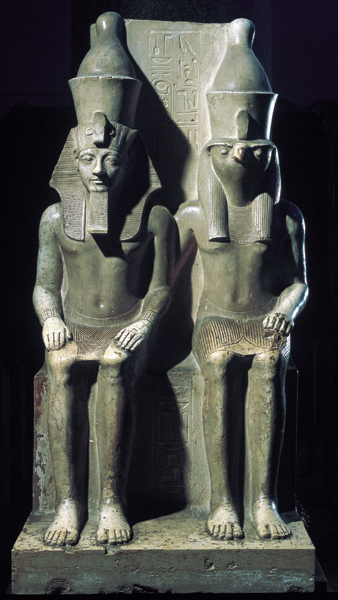Image Details

Erich Lessing
The falcon-headed god Horus sits beside Pharaoh Haremhab, the last ruler of the 18th Dynasty, in this limestone statue. Both wear the crown of Upper Egypt. Pharaohs, at their coronations or at the moment of their fathers’ deaths, were believed to become the incarnation of Horus—a son of Re, the sun god and chief Egyptian deity. Accordingly, one of the names given to the new pharaoh at his coronation was “Living Horus.” As Horus, the new pharaoh became the son of Re, a divine sonship sometimes referred to as “adoption sonship.”
In ancient Israel, kings were also called sons of God. The Bible quotes Yahweh, Israel’s one God, saying of David, “I will be his father, and he shall be my son” (2 Samuel 7:14) and, more generally, “I have set my king on Zion, my holy hill…You are my son; today I have begotten you” (Psalm 2:6–7). Though scholars disagree about whether Israel’s ideas of kingship were influenced by Egyptian ones, some see adoption formulas in these Bible passages.
